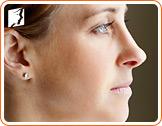
Menopause can be an emotionally and physically distressing time, even for the toughest women out there. But what if you start menopause early; before your time, before marriage, or even before having children? This is a reality for many women, and though initially difficult, the experience of early menopause can be turned into a positive learning opportunity, before carrying on with their lives. Read on to learn more about early menopause and how it may affect your life.
What Is Early Menopause?
Generally, menopause begins when women are in their early 50s. However, this is a flexible rule, and early on-set menopause can occur for some women as early as their late 30s. In rarer cases still, menopause can strike in women who are in their mid-20s. This can be a difficult time, both emotionally and physically, especially when the onset of menopause is completely unexpected.
Signs of Early Menopause
Menopause symptoms are caused by fluctuating levels of hormones. Hormones help to regulate many of the body's essential functions, so when their levels drop, the effects on the body can be massive. Such symptoms may include:

- Hot flashes
- Night sweats
- Irregular periods
- Loss of libido
- Vaginal dryness
- Mood swings
If you're a young woman suffering from any of these symptoms, then you may be approaching the transition into menopause. If you have not had a period in twelve months, you may have already gone through early menopause. Factors like significant weight loss or weight gain, over-exercise, stress, and others can also cause a woman's period to cease, so it's important to consult with your doctor if you think you may be experiencing early menopause.
Causes of Early Menopause
Early menopause occurs due to number of reasons. Genetic factors play in important role: researchers believe that most women are genetically programmed to enter menopause at around the same age as their mothers did. In this case, you will experience premature ovarian failure, which means that your ovaries have stopped working as they should for ovulation and reproduction to continue. Premature menopause may also be set off by cancer treatments, such as chemotherapy or radiotherapy, or by surgeries like hysterectomy or oophorectomy (removal of the uterus or the ovaries).
Recommendation
Just like with regularly-timed menopause, the effects of early menopause can't be reversed. You should follow certain approaches combat symptoms of early menopause, including lifestyle changes, alternatives remedies, and hormone replacement therapy (HRT). Remember to talk to your doctor in order to determine the right treatment for you.
Sources
- BMJ Group. "Menopause: What is it?" Patient Leaflet. 2007.
- Hopkins, Virginia. Lee, John R. M.D. What Your Doctor May Not Tell You About Menopause. New York: Warner Books Inc., 1996.
- Love, Susan M.D. Menopause and Hormone Book. New York: Three Rivers Press, 2003.
- Martin, Raquel. The Estrogen Alternative. Rochester, VT: Healing Arts Press, 2000.



